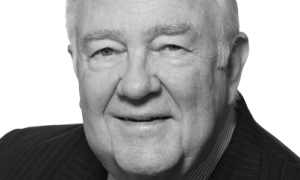America was founded to be a beacon of liberty, particularly religious liberty. The framers of our Constitution sought to preserve religious liberty to such an extent that they made it the first right protected in the Bill of Rights.
President Reagan, expanding on President Lincoln’s phrase, referred to America as “the last, best hope of man on Earth.” But this last, best hope is beginning to fade.
In countless instances we’re seeing government exceed its proper constitutional role, ignore the constitutional limits placed on its power, and interfere with the constitutionally guaranteed liberties of its citizens -- especially eroding religious liberty.
To restore the American experiment in democratic self-government, religious believers need to redouble their civic efforts. For without our active participation in politics, the government will continue to trample on our rights.
The Constitution does not prevent people of faith from being active in politics. Rather, it’s meant to protect and encourage their civic engagement.
In 1787, the story goes, a citizen approached Benjamin Franklin as he departed the Constitutional Convention in Philadelphia, and asked him what kind of government the framers had created. "A republic," Franklin famously replied, adding, "if you can keep it."
His answer is as relevant today as it was then.
Pastors can lead the way in motivating the faithful to wise stewardship of their citizenship responsibilities. Without a healthy culture and civil society, limited government and ordered liberty will be impossible.
Consider just a few examples of recent assaults on religious liberty.
Under the Obama administration’s constitutionally dubious health care law, a mandate from the U.S. Department of Health and Human Services (HHS) requires nearly all employers to cover abortion drugs, sterilization and contraception regardless of religious or moral objection. The “religious exemption” in this Obamacare policy effectively protects only houses of worship from complying.
The HHS mandate forces an impossible choice on countless religious groups and family business owners: Violate your conscience or pay a fine of $100 per day per employee. That’s why dozens of Catholic, Protestant, Orthodox and Jewish groups unsuccessfully urged President Obama to drop this conscience-crushing mandate. It’s why more than 200 plaintiffs have gone to court in more than 70 lawsuits.
The Obama administration also refused to perform its constitutional duty to defend the Defense of Marriage Act, which President Clinton signed into law in 1996 with overwhelming bi-partisan support.
In June, the Supreme Court declared this law unconstitutional, further debasing our marital culture while describing supporters of traditional marriage as bigots. Now courts across the nation are penalizing religious believers while echoing this characterization of marriage defenders as motivated by animus.
In August, the New Mexico Supreme Court ruled that the First Amendment does not protect a Christian photographer’s right to decline to take pictures of a same-sex commitment ceremony—even though doing so would violate the photographer’s deeply held religious beliefs.
Christian adoption and foster care agencies have been forced to stop providing those services because they object to placing children in same-sex households. Other cases infringing on religious freedom are aimed at a baker, a florist, a bed-and-breakfast, a T-shirt company, a student counselor and even the Salvation Army.Christians, indeed people of all faiths, need to speak out against these violations of religious liberty.
Some will say that Christians shouldn’t be active in politics—that we should simply focus on the life of the church. Others will argue that Christians can’t be active in politics—that the so-called separation of church and state prevents people of faith from participating in the political process.
Both of these arguments are false.
Christians have a moral obligation to be faithful citizens. Patriotism and service to our nation are hallmarks of the Christian calling, so long as duty to God is not compromised.
So, too, the framers of the Constitution expected people of faith to contribute to our polity.
“Of all the dispositions and habits which lead to political prosperity, religion and morality are indispensable supports,” President Washington reminded Americans in his Farewell Address. He added: “And let us with caution indulge the opposition, that morality can be maintained without religion.”
Washington’s successor, John Adams, went so far as to say that “Our Constitution was made only for a moral and religious people. It is wholly inadequate to the government of any other.”
People of faith can and must help revitalize our nation. Pastors have a vital role to play. They
are free to help their congregants understand and embrace the role they must play as active and faithful citizens in our republic. Pastors also are free to encourage registering to vote, becoming informed, showing up on Election Day and casting votes that protect our liberties and support godly values.
Organizations such as the Family Research Council, The Heritage Foundation, Liberty Counsel and Alliance Defending Freedom, among other groups, offer particularly helpful resources to equip pastors and others to address these issues.
It is no exaggeration to say that Christian engagement in America’s political realm is essential if we are to restore the luster to this “shining city on a hill.”
Edwin Meese III, the 75th attorney general of the United States, is the Ronald Reagan distinguished fellow emeritus at The Heritage Foundation.



